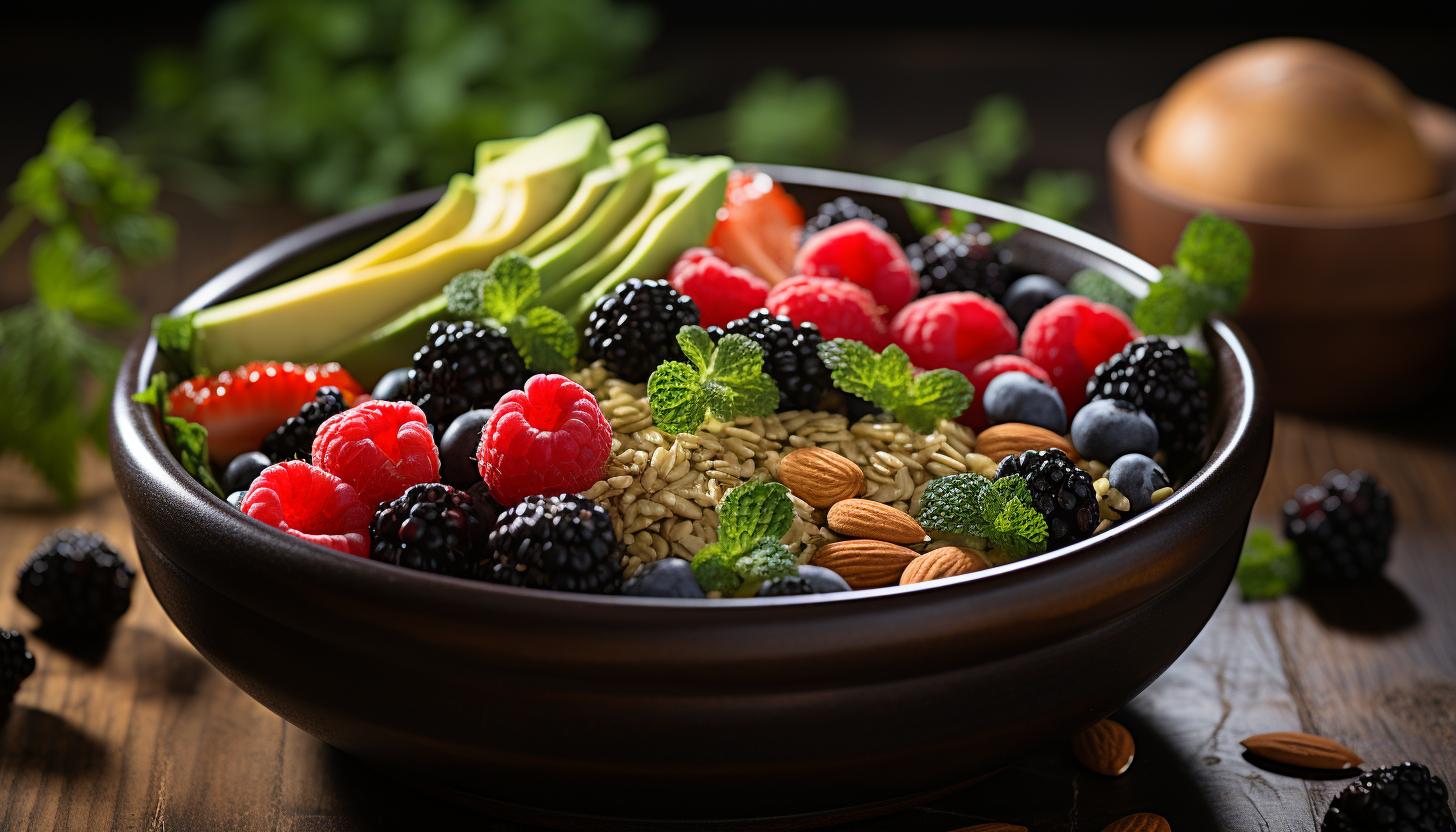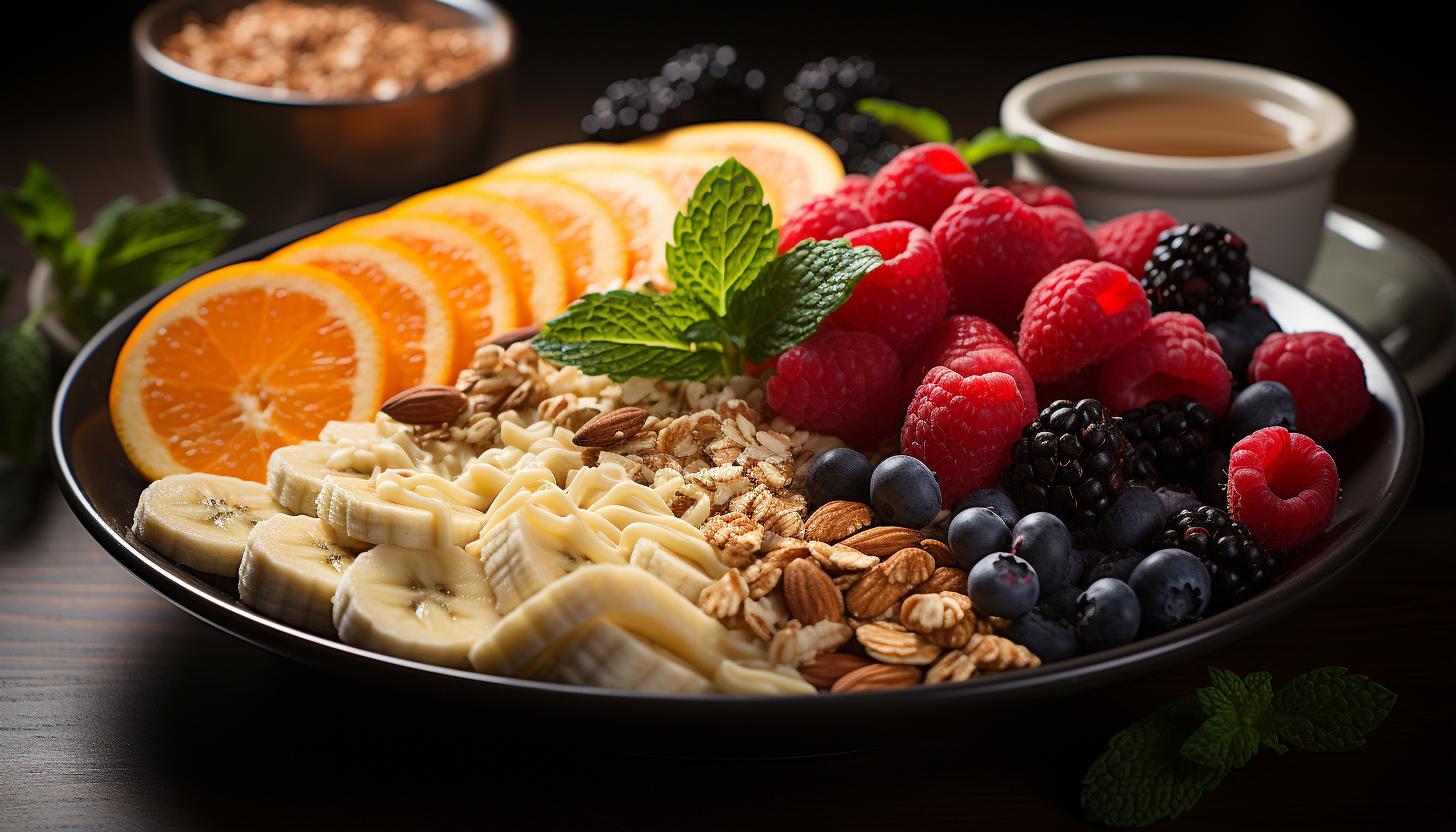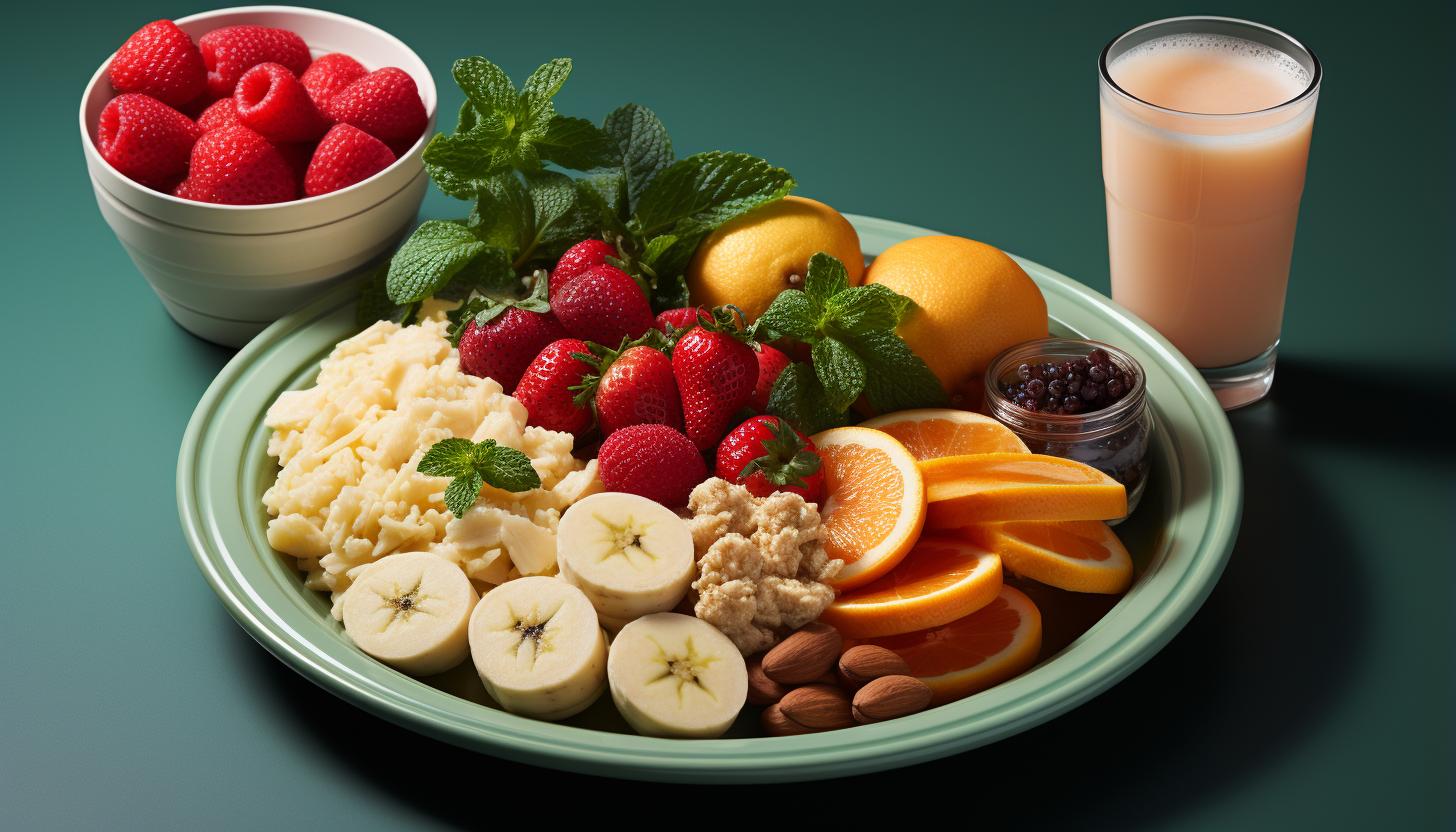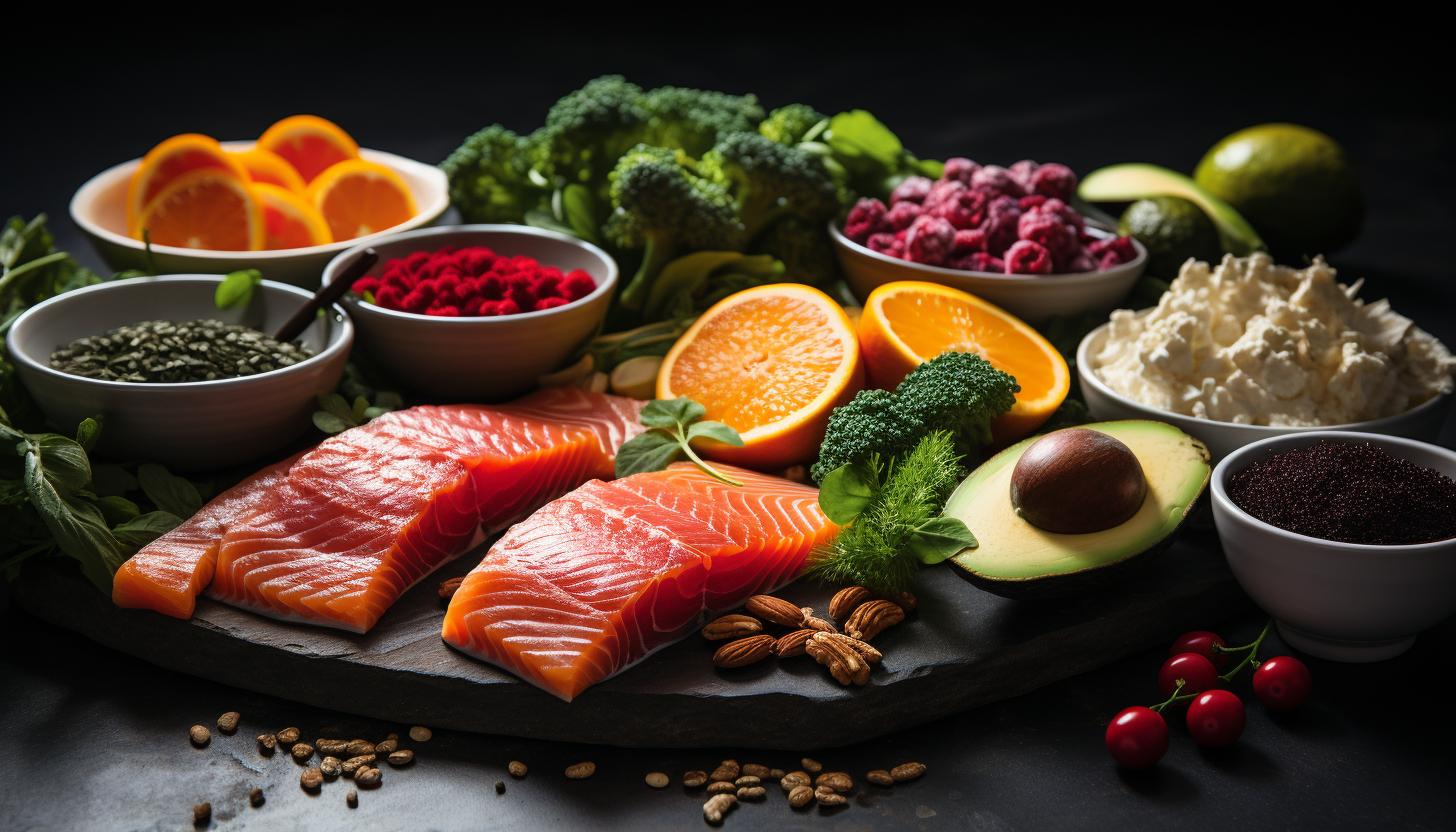Nutrition Tips for Beginner Runners

Looking to improve your running performance? Wondering how to fuel your body properly for optimal results? Look no further.
In this article, we will provide you with essential nutrition tips specifically designed for beginner runners. Are you ready to take your running game to the next level?
Discover the importance of fueling your body, pre-run nutrition strategies, hydration techniques, post-run recovery foods, and even nutritional supplements that can support your training.
Let’s dive in and maximize your running potential together!
The Importance of Fueling Your Body

You need to understand the importance of fueling your body properly as a beginner runner. Proper nutrition plays a vital role in fueling your body and enhancing your running performance.
One key nutrient that you should focus on is carbohydrates. Carbohydrates are the primary source of energy for your muscles, providing easily accessible fuel during exercise. They are stored as glycogen in your muscles and liver, and when you run, this glycogen is broken down to release energy.
Research has shown that consuming an adequate amount of carbohydrates before exercise can improve endurance and delay fatigue. As a beginner runner, it is important to ensure that you have enough glycogen stores to sustain your runs without feeling exhausted too quickly.
In addition to carbohydrates, proper nutrition has a significant impact on overall running performance. A well-balanced diet rich in fruits, vegetables, lean proteins, and healthy fats provides essential nutrients needed for muscle repair and recovery.
To optimize your running performance, make sure to include a variety of carbohydrate-rich foods such as whole grains, fruits, and starchy vegetables in your meals and snacks throughout the day. This will help maintain stable blood sugar levels and provide sustained energy for your runs.
Understanding the role of carbohydrates in fueling your body properly and recognizing the impact of proper nutrition on running performance sets the foundation for effective pre-run nutrition tips…
Pre-Run Nutrition Tips

Before heading out for a run, it’s important to fuel up with a light meal or snack. This will provide you with the energy needed to power through your workout and optimize your performance. Here are three pre-run snack ideas that can help you balance macronutrients for optimal performance:
1. Banana with almond butter: Bananas are rich in carbohydrates, which are essential for providing fuel to your muscles during exercise. Pairing it with almond butter adds protein and healthy fats, which can help sustain your energy levels throughout your run.
2. Greek yogurt with berries: Greek yogurt is an excellent source of protein while also providing carbohydrates. Adding some fresh berries not only enhances the flavor but also contributes antioxidants that may improve recovery post-exercise.
3. Whole grain toast with avocado: Whole grain toast offers complex carbohydrates that release energy slowly, keeping you fueled for longer periods of time. Avocado adds healthy fats and fiber, which aids in digestion and helps maintain satiety during your run.
Hydration Strategies for Runners

Staying properly hydrated is crucial for runners to maintain optimal performance and prevent dehydration. When you run, your body loses water through sweat, and it’s important to replenish those fluids to avoid negative effects on your health and performance.
One effective way to stay hydrated during a run is by consuming electrolyte drinks. These drinks contain essential minerals like sodium, potassium, and magnesium that help maintain the balance of fluids in your body. They also provide carbohydrates for energy, which can be beneficial during long runs or intense workouts.
Another helpful tool for staying hydrated while running is a hydration belt. This handy accessory allows you to carry water with you without having to hold a bottle or stop at water fountains along your route. Hydration belts typically have multiple small bottles attached that can hold enough water or sports drink to keep you hydrated throughout your run.
To ensure you’re properly hydrating during your runs, it’s recommended to drink about 4-8 ounces of fluid every 15-20 minutes while running. This will vary depending on factors such as temperature, humidity, and the duration/intensity of your workout.
Post-Run Recovery Foods

After a run, it’s important to refuel your body with nutrient-rich foods that aid in recovery and muscle repair. Here are three foods you should consider incorporating into your post-run meal:
1. Greek yogurt: Packed with protein, Greek yogurt is an excellent choice for muscle repair. It contains essential amino acids that help rebuild and strengthen your muscles after exercise. Additionally, it provides carbohydrates for energy replenishment.
2. Salmon: Rich in omega-3 fatty acids, salmon has anti-inflammatory properties that can reduce post-workout muscle soreness and inflammation. It also contains high-quality protein and essential nutrients like vitamin D, which supports bone health.
3. Sweet potatoes: These starchy vegetables are an excellent source of complex carbohydrates, which provide sustained energy replenishment. They also contain vitamins A and C, as well as potassium, which helps prevent muscle cramps.
Incorporating these nutrient-dense foods into your post-run meals can enhance the recovery process by promoting muscle repair and aiding in energy replenishment. Remember to listen to your body’s needs and adjust the portion sizes accordingly.
Fueling properly after a run will not only improve your performance but also support overall health and well-being.
Nutritional Supplements for Runners

If you’re looking to enhance your performance as a runner, consider incorporating nutritional supplements into your routine. Performance enhancing supplements can provide the extra boost your body needs to improve endurance, speed, and recovery. However, it’s important to note that supplements should not replace a well-balanced diet but rather complement it.
Here are some popular performance enhancing supplements for runners:
| Supplement | Benefits | Recommended Dosage |
|---|---|---|
| Creatine | Increases strength | 3-5 grams per day |
| Beta-Alanine | Improves endurance | 2-5 grams per day |
| Caffeine | Enhances focus | 1-3 mg per kg of body weight |
The timing of supplement intake is crucial for optimal results. For creatine and beta-alanine, it’s best to take them about 30 minutes before your workout or race. This allows the supplements to be fully absorbed by your muscles when you need them most. On the other hand, caffeine should be consumed about an hour before exercise to give it enough time to take effect.
Remember, everyone’s body is different, so consult with a healthcare professional or registered dietitian before starting any new supplementation regimen. They can help determine the right dosage and timing based on your specific goals and needs.
Incorporating performance enhancing supplements into your running routine can give you that extra edge you’ve been looking for. Just be sure to do your research, follow recommended dosages and timings, and make informed decisions about which supplements are right for you. Happy running!
Conclusion
Congratulations on completing your first article on nutrition tips for beginner runners!
By fueling your body properly before, during, and after your runs, you can enhance your performance and promote optimal recovery. Remember to prioritize carbohydrates for energy, hydrate adequately, and consume protein-rich foods to aid in muscle repair.
Additionally, consider incorporating nutritional supplements that are specific to runners‘ needs. By following these evidence-based strategies, you’ll be well on your way to reaching your running goals and becoming a stronger, healthier runner.
Keep an eye out for future articles that delve deeper into each of these topics – there’s always more to learn!






